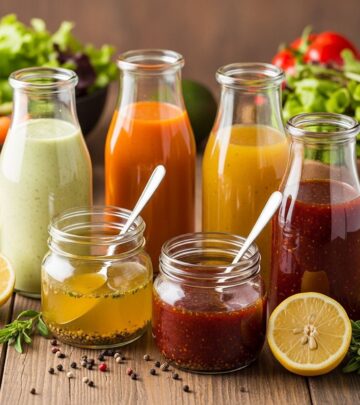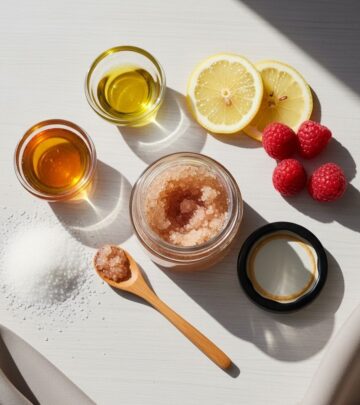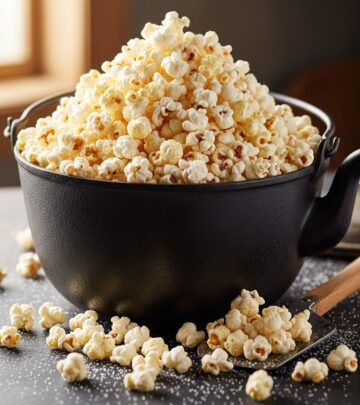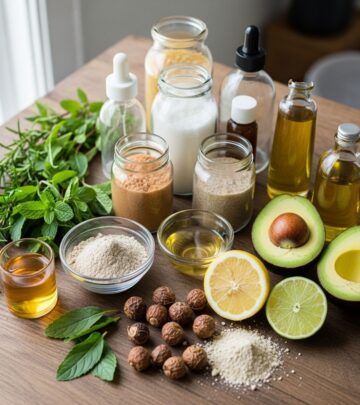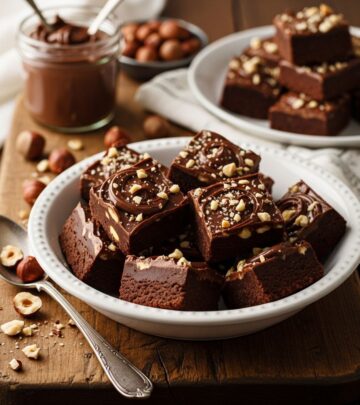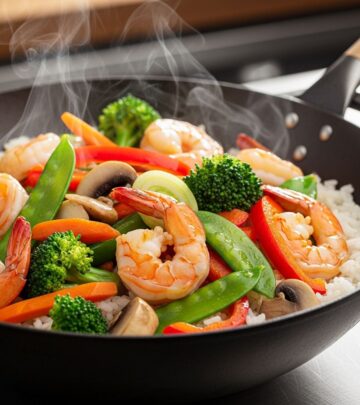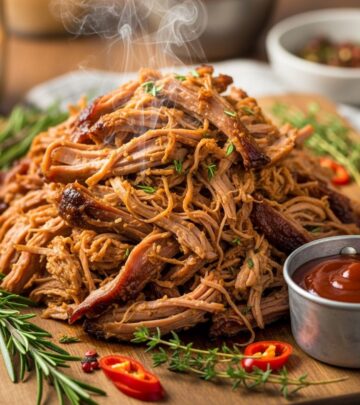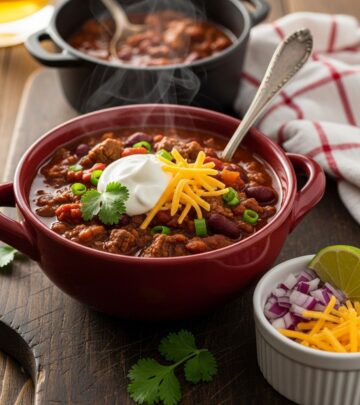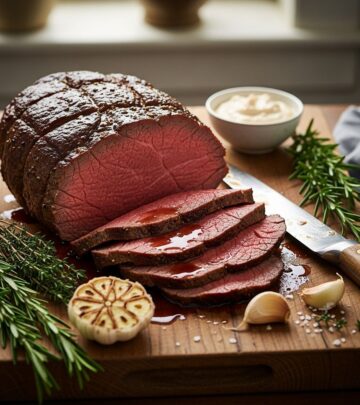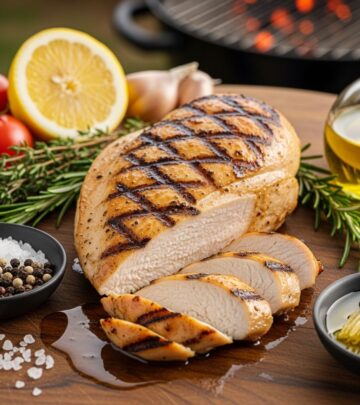Essential Marinades and Rubs for Unforgettable Summer Grilling
Simple spice blends and techniques ensure every bite bursts with bold, tender flavor.
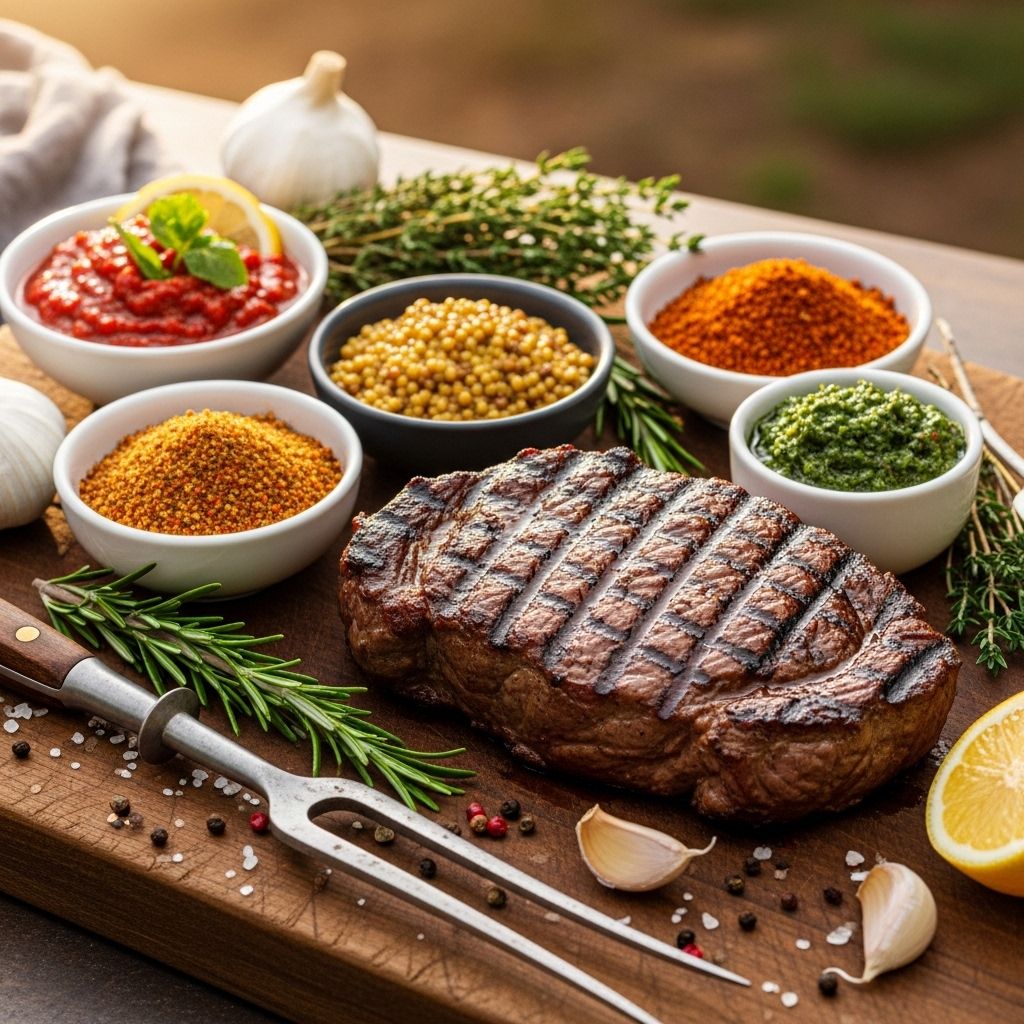
Summer grilling isn’t complete without the rich, bold flavors of homemade rubs and marinades. Whether you’re a barbecue enthusiast, a fan of global cuisine, or just someone seeking to enhance the taste and tenderness of your grilled dishes, learning to prepare your own blends is essential. Below, you’ll find everything you need: versatile dry rubs, all-purpose sauces, and diverse marinades suited for meats, seafood, and even vegetables. Fire up the grill and unlock a season of flavor.
Why Make Your Own Marinades and Rubs?
Homemade rubs and marinades offer many advantages over store-bought alternatives:
- Freshness: Use freshly ground spices and herbs, which intensify aroma and taste.
- Customization: Adjust flavor intensity, salt, sugar, and heat to suit your preferences.
- Cost-Effective: Batch-making is affordable and ensures you know every ingredient used.
- Versatility: One good mix can serve as a dry rub, a marinade base, or a compound seasoning.
All-Purpose Barbecue Dry Rub
A good barbecue rub is the foundation of countless great grill sessions. This blend balances sweet, spicy, and savory elements, making it ideal for chicken, pork, beef, and even grilled tofu.
- Key Components: Brown sugar, paprika, black pepper, coriander, onion powder, garlic powder.
- Tip: For those who dry-brine their meat, skip adding extra salt. Otherwise, add kosher salt if using as a stand-alone blend.
- How to Use: Generously coat meat before grilling; can be used days in advance for deeper flavor infusion.
Classic All-Purpose Barbecue Sauce
Barbecue sauce is as critical as the rub, lending moisture, caramelization, and bold flavor. A homemade sauce delivers a perfect balance of tang, sweetness, and savory depth, enhanced by molasses, Worcestershire sauce, and a hint of smoke.
- Ideal Pairings: Ribs, burgers, grilled chicken, tofu, and even roasted vegetables.
- Storage: Keeps for several months refrigerated—make in larger batches for summer-long use.
- Versatility: Works as a basting sauce, glaze, or dipping condiment.
Sample Table: Core Ingredients in Classic Barbecue Sauce
| Ingredient | Role in Sauce |
|---|---|
| Molasses | Rich sweetness, color, deeper flavor |
| Worcestershire | Umami, savory complexity |
| Vinegar | Tangy acidity for balance |
| Liquid Smoke | Smoky aroma and authenticity |
| Brown Sugar | Balanced sweetness, helps caramelization |
Rub for Pulled Pork
Pulled pork shines with a specific blend of sweet and spicy flavors. This rub leverages the warmth of brown sugar and paprika, the bright heat of black pepper and coriander, and the aromatic depth of onion and garlic powders.
- No Salt Added: Designed for pre-brined meats, preserving control over saltiness and avoiding over-seasoning.
- Application: Use liberally—rub the mixture into every surface and allow time for flavor to penetrate.
Koji Marinade for Maximum Umami
Originating from Japanese cuisine, koji is fermented rice inoculated with special mold, famed for unlocking deep umami and tenderizing power. It works well with beef, pork, poultry, seafood, and even vegetables.
- Main Effects: The enzymes in koji break down amino acids and starches, tenderizing proteins and boosting complex flavors.
- Flavor Profile: Sweet, savory, and subtly funky with pronounced umami notes.
- Technique: Marinate for several hours or overnight for maximum impact. Use sparingly, as koji is potent.
Filipino Chicken Inasal Marinade
This iconic Filipino recipe blends coconut vinegar and calamansi juice with savory and sweet notes for a uniquely Southeast Asian grilled chicken experience.
- Acidity and Sweetness: Coconut vinegar and calamansi juice tenderize the chicken, while muscovado sugar lends caramel depth.
- Key Ingredients: Maggi seasoning (umami), garlic, lemongrass, ginger, and soda for sweetness and browning.
- Preparation: Marinate chicken for at least 12 hours; grill over medium-hot coals, brushing regularly with reserved marinade.
Sticky and Sweet Filipino Barbecue Skewers
Filipino meat skewers achieve their crave-worthy stickiness via a marinade rich in cola, citrus, soy, and brown sugar, reduced for a glossy finish. The overnight marination ensures deep flavor penetration and a caramelized exterior.
- Main Marinade Ingredients: Cola, brown sugar, onions, soy sauce, cider vinegar, orange juice, ketchup, and garlic.
- Glaze: Use a portion of the reduced marinade to brush over skewers in the final grilling phase.
- Tip: Works equally well for chicken or pork; try with alternative proteins or vegetables for variation.
Mojo Marinade and Sauce
Mojo is a vibrant Cuban sauce/marinade celebrated for its bright, citrusy, and garlicky punch. It’s excellent for chicken, pork, fish, and grilled vegetables—not to mention as a zesty table sauce.
- Key Flavors: Orange juice, lime juice, fresh garlic, oregano, olive oil.
- Usage: Marinate proteins for a few hours; serve extra sauce at the table for added impact or as a dipping sauce for grilled foods.
Teriyaki Marinade
The ever-popular Japanese teriyaki sauce features a harmonious blend of soy, mirin, and sugar, providing a glossy texture and sweet-savory profile. Unlike commercial versions, homemade teriyaki is free from thickeners and artificial preservatives, making it versatile for both marinating and glazing.
- Best for: Salmon, steak, chicken, pork, and vegetable kebabs.
- Tip: Double as a dipping sauce or stir-fry base in non-grilling applications.
Caribbean Jerk Marinade
Jerk is a dynamic, spicy-sweet, and aromatic Caribbean marinate that infuses food with heat and complexity. Key flavors come from scotch bonnet peppers, allspice, thyme, and brown sugar.
- Main Proteins: Chicken, pork, fish, shrimp, and tofu.
- Technique: Marinate overnight for best results; grill over direct heat and finish over indirect for smoky-sweet flavor development.
Al Pastor Marinade
This Mexican classic uses pineapple, chile, and spices to bring out a tangy-sweet, earthy heat perfect for pork, chicken, or even grilled mushrooms.
- Hallmarks: Pineapple juice contributes tenderization and caramelization, while a mixture of dried chiles brings color and kick.
- Serving Idea: Use al pastor-marinated pork for tacos, topping with grilled pineapple and fresh cilantro.
Indian-Inspired Spice Pastes and Rubs
Spice pastes and rubs are essential to Indian grilling. While a paste relies upon a base of yogurt or oil for moisture and adhesion, rubs tend to utilize ground spices exclusively.
- Typical Blends: Garam masala, turmeric, cumin, coriander, chili powder, fresh garlic, and ginger.
- Tandoori Marinade: A yogurt-based marinade colored with turmeric and flavored with warming spices, ideal for chicken, lamb, or paneer.
- Technique: Allow at least four hours for yogurt-based marinades to tenderize and season meats.
Essential Techniques: Marinating, Rubs, and Grilling Tips
- Marinade Dos:
- Marinate meats in the refrigerator, never at room temperature.
- Use glass or stainless-steel bowls—avoid aluminum, which can react with acidic mixtures.
- Don’t reuse marinade unless boiled for at least 3 minutes to kill bacteria.
- Dry Rub Tips:
- Apply rubs at least one hour (preferably longer) before grilling for maximum flavor.
- For extra bark on meats, allow rubbed meat to air-dry, uncovered, on a rack in the fridge overnight.
- Grilling Pointers:
- Pat marinated meats dry before grilling to encourage browning.
- Add sauces or glazes toward the end of grilling to prevent burning, especially if sugar content is high.
Frequently Asked Questions (FAQs)
Q: How long should I marinate different proteins?
A: Most meats benefit from 4–12 hours of marination. Seafood only needs 15–45 minutes, while vegetables usually require 30–60 minutes.
Q: Can I use the same marinade for multiple types of meat?
A: Yes, but keep in mind that some flavors may work better for certain proteins (e.g., sweet marinades for pork, acidic marinades for chicken). Always avoid cross-contaminating raw poultry and seafood with the same marinade batch.
Q: Are homemade rubs healthier and safer than store-bought?
A: Homemade rubs typically contain less salt, sugar, and preservatives, and you have complete control over ingredient quality and freshness.
Q: How do marinades actually work?
A: Marinades combine acid (vinegar, citrus, yogurt), salt, and flavorings to tenderize the outer layer of food and infuse it with seasoning. Enzyme-based marinades (like those with pineapple or koji) go further, breaking down proteins for notably tender results.
Q: What’s the difference between rubs and spice pastes?
A: Rubs are dry mixes without added liquid, whereas spice pastes incorporate oil, yogurt, or other liquids to form a spreadable consistency. Both deliver flavor; pastes often help moisture retention and browning.
Conclusion: Build Your Personal Grilling Flavor Library
Mastering a collection of versatile marinades, rubs, and sauces is the secret to memorable summer meals. Start with classic all-purpose blends, explore the world’s flavors with international recipes, and don’t hesitate to tweak or personalize to match your favorite dishes. Most importantly, make your grilling experience your own—bold, flavorful, and uniquely delicious, every time.
Read full bio of medha deb

